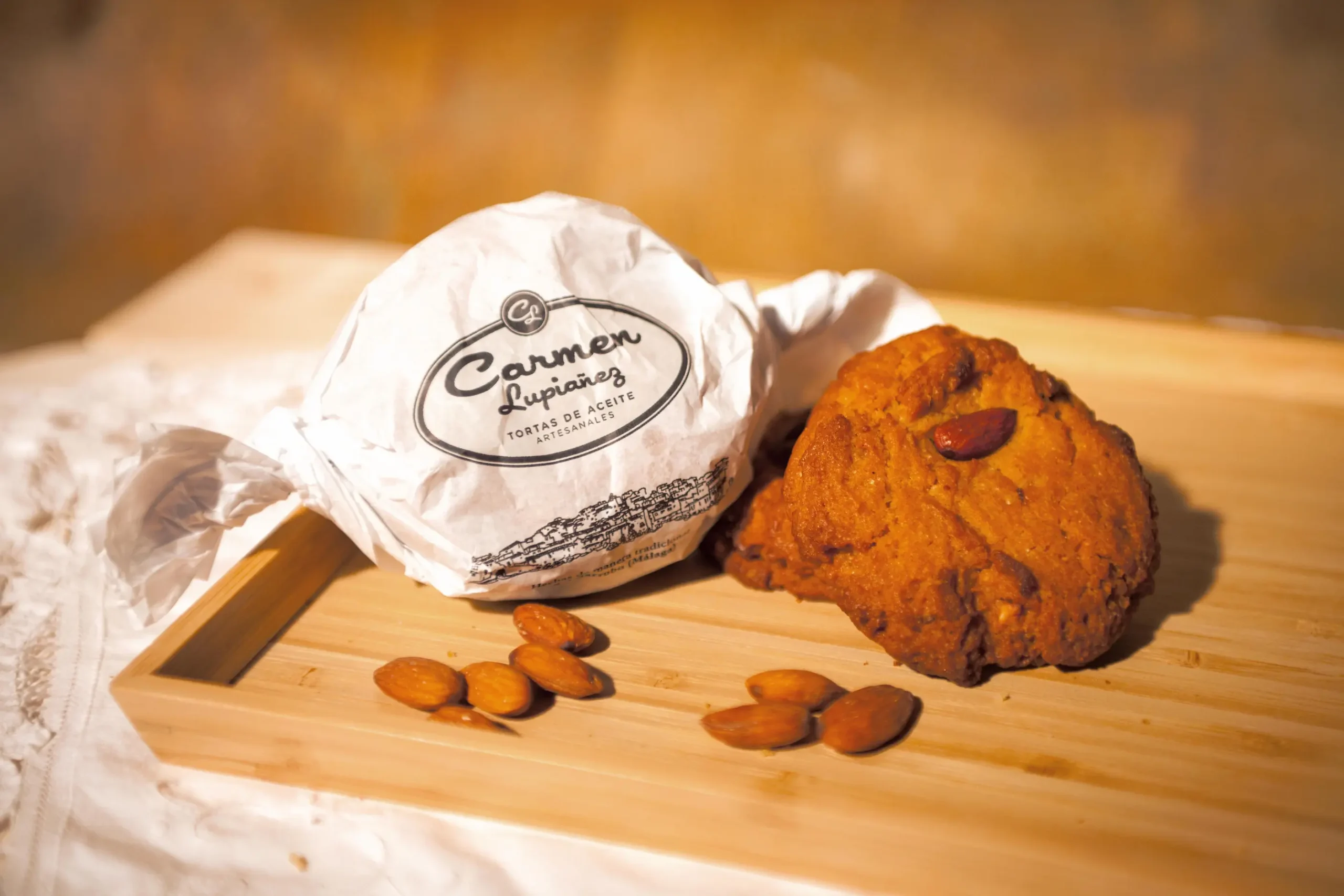
Introduction
The carob cakes are one of the most emblematic sweets in the province of Malaga and a benchmark in traditional Andalusian confectionery. At Carmen Lupiañez CakesWith more than five generations of history in Algarrobo, Malaga, we continue to make this traditional sweet with quality ingredients and respect for the original recipe.
History of Algarrobo Cakes
The origin of carob cakes dates back to the 19th century in the Axarquía region, specifically in the municipality of Algarrobo. The recipe was born in a rural environment, where extra virgin olive oil and wheat flour were basic ingredients of the Mediterranean diet. Over the years, these cakes have established themselves as a typical sweet of Málaga, present at celebrations, fairs and family gatherings.
The tradition has been kept alive by family-run bakeries such as Carmen Lupiañez Cakeswho have been able to pass on the authentic flavour of the Axarquía from generation to generation.
Benefits of Carob Cakes
Carob cakes stand out not only for their taste, but also for their benefits:
- CraftsmanshipWithout preservatives or additives, using natural ingredients.
- Extra virgin olive oilIt provides healthy fats and antioxidants, key in the Mediterranean diet.
- Natural energyPerfect for breakfast, snacks or as a healthy snack.
Carob Cakes in Malaga's Gastronomy
The carob cakes are part of the recipe book of typical sweets of Malaga. and are renowned for their crunchy texture and slightly aniseed flavour. They can be enjoyed on their own or accompanied by coffee, hot chocolate or even soft cheeses, and are a highly valued product by locals and visitors alike who are looking for an authentic Malaga sweet.
What are the differences between carob cakes and other traditional cakes?
The carob cakes are distinguished from other traditional cakes mainly by their origin, ingredients, method of preparation and nutritional profile. Here is a clear summary of their main differences:
Origin and Tradition
- Carob cakesThey originate from the village of Algarrobo, in the Axarquia region of Malaga. The recipe dates back to Arab times and has been handed down from generation to generation, being a symbol of local and provincial identity.
- Other traditional cakesAlthough many have ancient roots, they are often associated with other regions of Andalusia or Spain, and their recipes can vary greatly depending on the area.
Ingredients
- Carob cakesThey are made with natural and local ingredients such as extra virgin olive oil, wheat flour, sugar, raw almonds, sweet Malaga wine, aniseed (matalahúva), cinnamon and yeast. They contain no animal products, so they are suitable for vegan and vegetarian diets.
- Other traditional cakesThey may include lard, eggs, milk or butter, and in many cases are not suitable for vegans. Olive oil is often substituted by other fats in many recipes outside Malaga.
Elaboration
- Carob cakesThey maintain a very careful artisan process, where each piece is made and weighed by hand, without preservatives or additives, respecting the traditional recipe.
- Other traditional cakesAlthough many follow artisanal processes, others may be more industrialised or include additives and preservatives to prolong their shelf life.
Flavour and Texture
- Carob cakesThey offer a characteristic flavour thanks to the aniseed, cinnamon and sweet wine, with a crunchy touch from the almonds and a delicate, oily texture provided by the olive oil.
- Other traditional cakesFlavour and texture vary greatly depending on the recipe, but they tend to be less aromatic if they do not include spices such as anise or cinnamon, and the texture can be denser or buttery if they contain lard or butter.
Conclusion
The carob cakes are much more than a sweet: they represent the history, tradition and flavour of Malaga. At Carmen Lupiañez Cakes we are still committed to artisan production so that you can enjoy an authentic, healthy product, full of roots.
Do you want to taste the authentic flavour of the Axarquía? Discover our carob cakes and bring to your table the best of the best typical sweet from Malaga.


